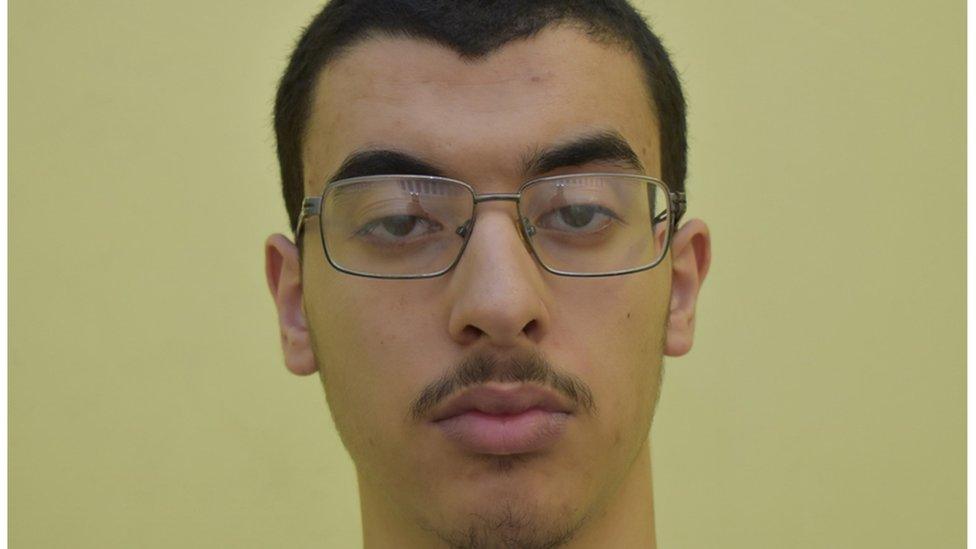Manchester Arena inquiry: Bomber brother's confession 'propaganda'
- Published

Top row (left to right): Alison Howe, Martyn Hett, Lisa Lees, Courtney Boyle, Eilidh MacLeod, Elaine McIver, Georgina Callander, Jane Tweddle - Middle row (left to right): John Atkinson, Kelly Brewster, Liam Curry, Chloe Rutherford, Marcin Klis, Angelika Klis, Megan Hurley, Michelle Kiss - Bottom row (left to right): Nell Jones, Olivia Campbell-Hardy, Philip Tron, Saffie-Rose Roussos, Sorrell Leczkowski, Wendy Fawell
A confession by the brother of the Manchester Arena bomber amounts to "pro-Islamic State propaganda", a public inquiry has heard.
Hashem Abedi admitted his role during a prison interview in October.
He also gave a written statement, which the senior investigating officer in the case told the inquiry would have the effect of encouraging terrorist attacks if published.
Twenty-two people were killed in the bombing at the arena in May 2017.
Hashem Abedi, 23, had denied being part of the conspiracy at his Old Bailey trial earlier this year.
He claimed he did not hold extremist views and had been "shocked" by what his brother Salman had done.
But he was convicted and jailed for life with a minimum 55-year term for murdering the 22 victims of the attack.
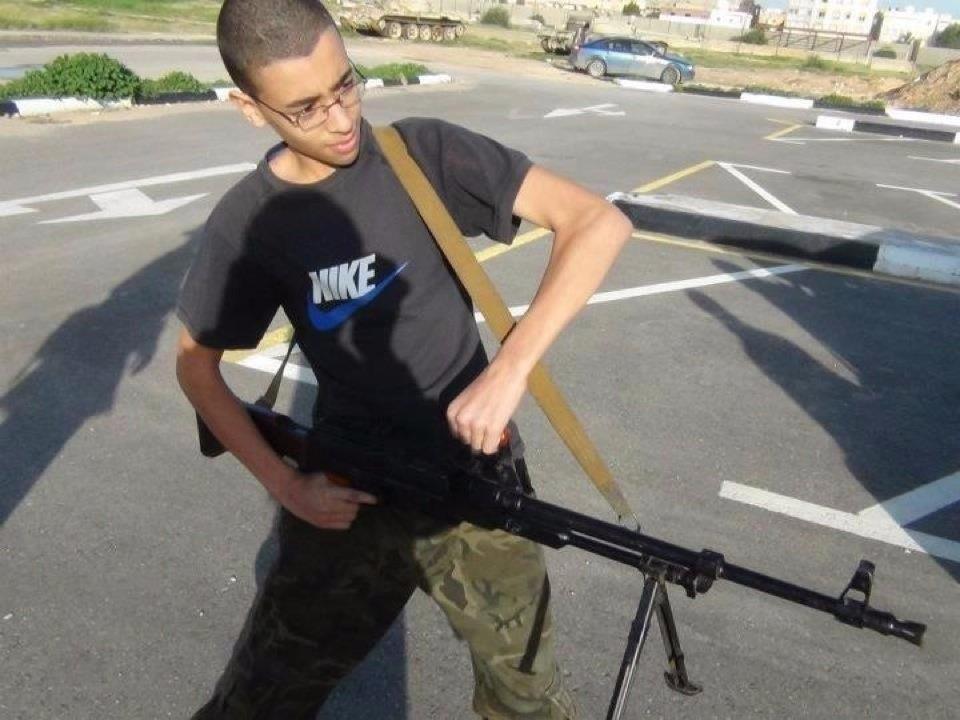
An image of a young Hashem Abedi from his father's Facebook page
Further information about the confession was revealed during the evidence of senior investigating officer Det Ch Supt Simon Barraclough, from Greater Manchester Police.
Paul Greaney QC, counsel to the inquiry, said Hashem Abedi's confession, which was filmed, came on 23 October during an interview in prison with a barrister and solicitor from the inquiry.
Mr Greaney told the inquiry that Hashem Abedi described himself as a supporter of violent jihad.
"He said that he was a supporter of Islamic State and his position was exposed very starkly by this question and answer.
"Question: What actions have you taken to support Islamic State?
"Answer: The Manchester attack."
Encourage terrorist attacks
Mr Greaney added: "He also handed over a statement in writing that he had prepared before the interview… it sets out his motivations for having engaged in the attack at Manchester and to put it in very simple terms it represents pro-Islamic State propaganda."
He asked Det Ch Supt Barraclough if publishing the interview video would have the effect of encouraging terrorist attacks.
The detective said it would.
When asked if publishing the written statement would have the same effect, he replied: "I have no doubt that it would".
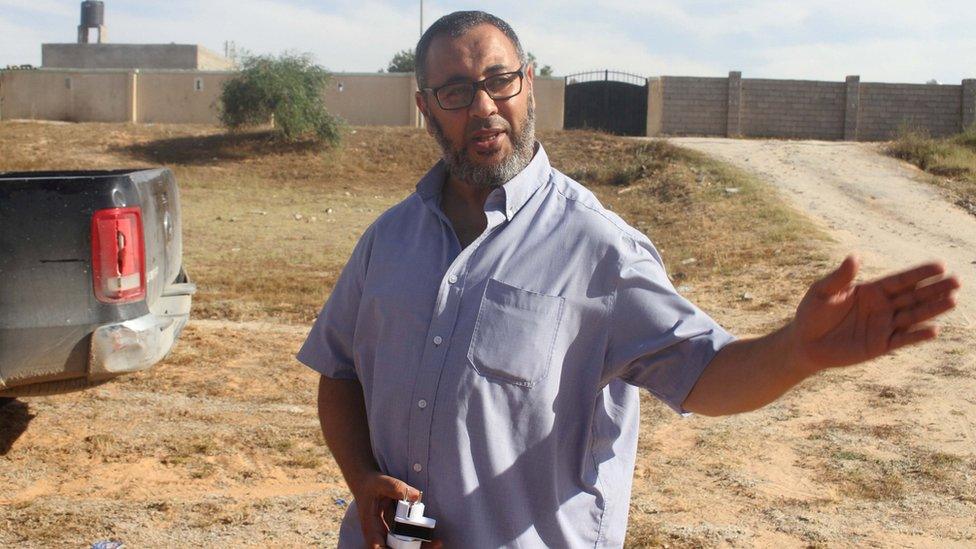
Ramadan Abedi is the father of brothers Salman and Hashem
The Abedi brothers' parents Ramadan Abedi and Samia Tabbal are in Libya but police want to question them as suspects.
The inquiry heard Ramadan Abedi messaged his sister in Canada the day after the attack to say Salman had "blown himself up".
He went on: "Allah is the predominant. I did my best.
"One month ago I went and returned them back and when I found out their thinking is wrong. She then went and gave him the passports. She told me he is going for Umrah (pilgrimage).
"I did not know anything about him until he travelled four days ago."
The inquiry also heard about social media accounts associated with the Abedi family.
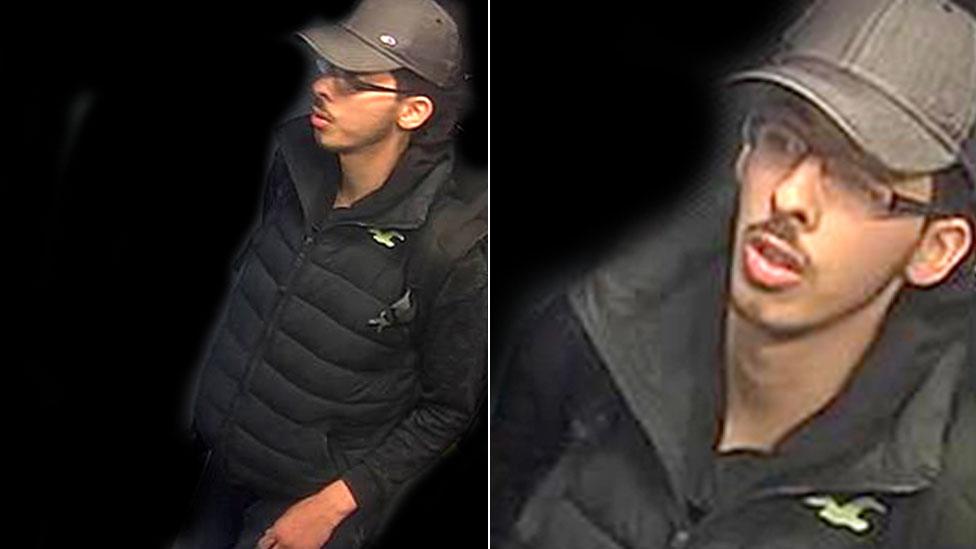
Salman Abedi pictured on CCTV shortly before the bombing
Detectives found Hashem Abedi's Facebook account contained images of him with weapons and of Islamic State militants cutting off the hand of a blindfolded man.
The inquiry heard a Facebook account of elder brother Ismail Abedi was reviewed by law enforcement in 2015, the same year he was stopped by counter terror police when entering the UK.
It included a photo of him "holding a machine gun and with what appears to be an Islamic State logo in flames behind him".
The Facebook account also contained "images of dead bodies" and "a person being burned", as well as a photo of Ismail Abedi with the son of senior Al-Qaeda militant Abu Anas al-Libi, the inquiry was told.
When Ismail Abedi was interviewed at Heathrow Airport that year his phone contained "numerous jihadi nasheeds" that encouraged the killing of infidels and suicide missions, IS recruitment videos and IS literature.
'DNA evidence'
The hearing was told that when he was arrested in Manchester the morning after the bombing he was carrying a rucksack containing multiple electronic devices.
These devices, and others found in his home, included images of "weapons and beheadings" and a "photograph of Osama bin Laden".
An inquiry lawyer has said that Ismail Abedi is refusing to help their investigation in case he incriminates himself.
He refused to explain why when challenged by the BBC.
The inquiry heard DNA evidence from Ramadan Abedi and Ismail Abedi was found in a Nissan Micra used to store explosives.
The car was owned by Salman and Hashem Abedi for around 40 hours before they flew to Libya with their parents in April 2017.
When Salman Abedi returned to UK he collected the explosives days before the bombing from the car parked near an associate's flat.
Ramadan Abedi's DNA was found on the indicator, the driver's door handle and a blue drum that was inside the car, while Ismail Abedi's DNA was found on a hammer found inside it.
The inquiry continues.

Why not follow BBC North West on Facebook, external, Twitter, external and Instagram, external? You can also send story ideas to northwest.newsonline@bbc.co.uk, external
Related topics
- Published8 December 2020
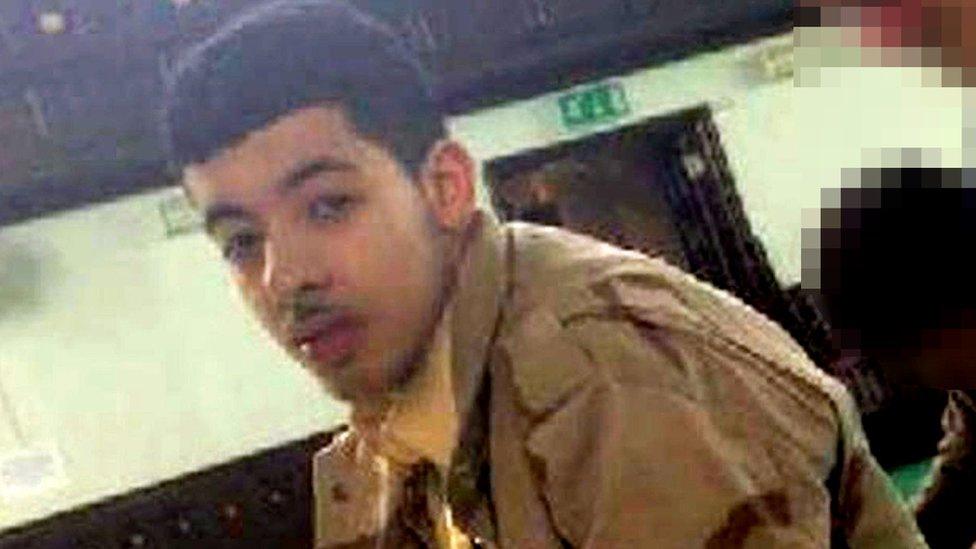
- Published7 December 2020
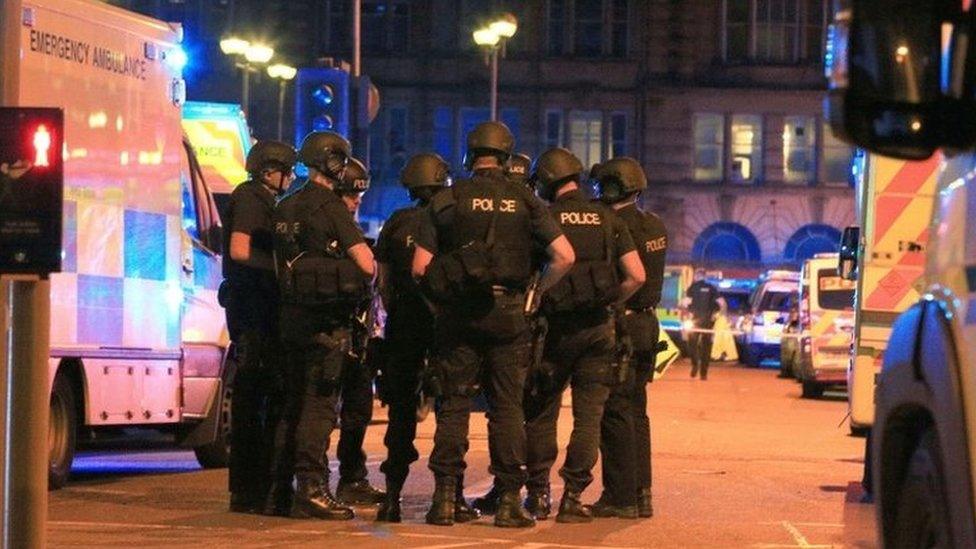
- Published3 December 2020
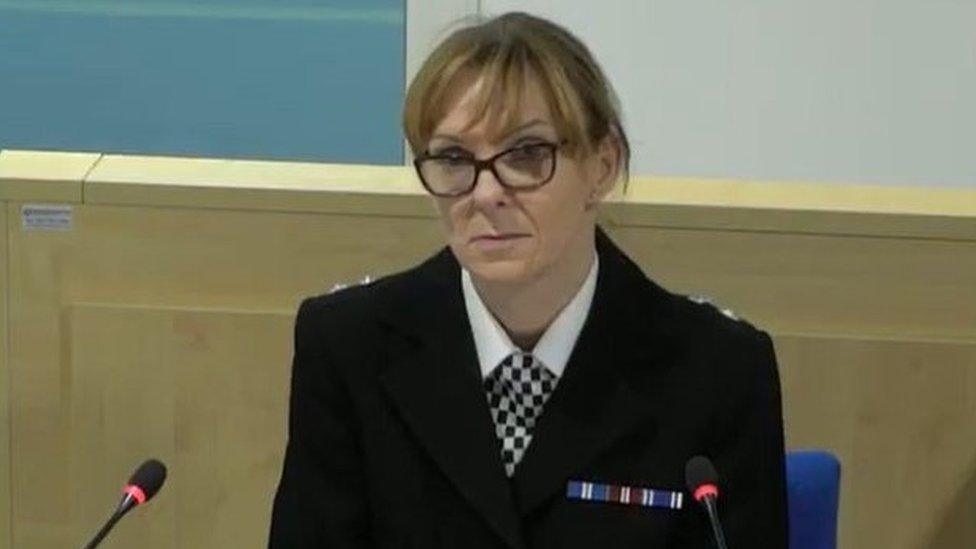
- Published2 December 2020
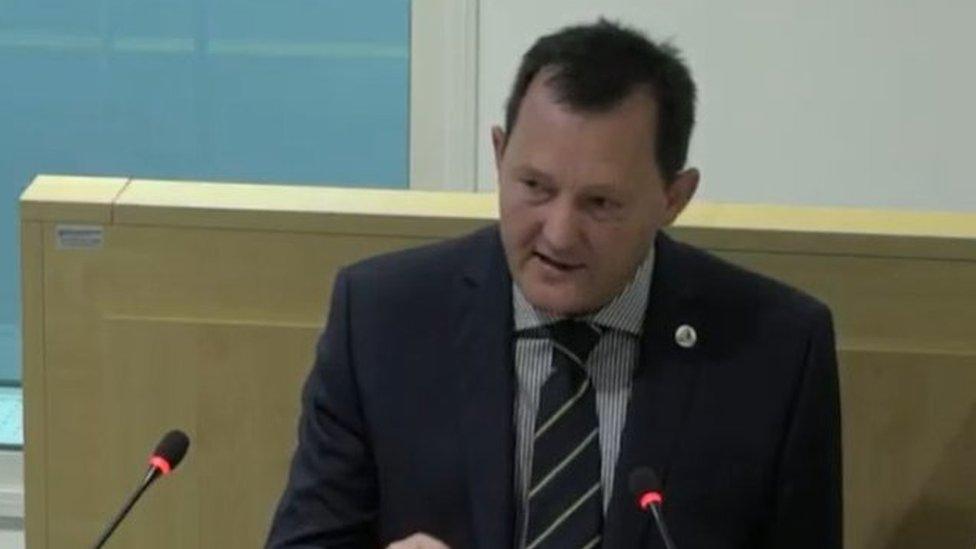
- Published1 December 2020

- Published30 November 2020
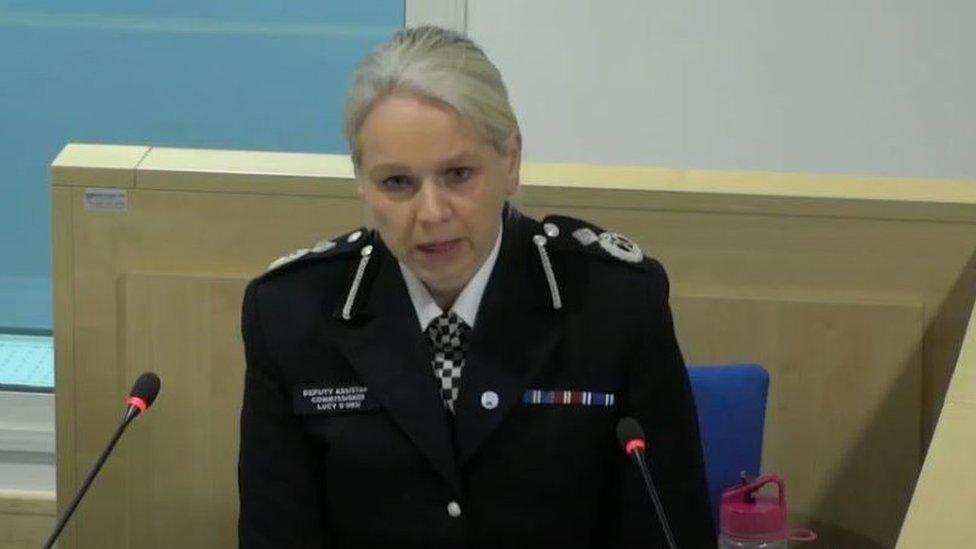
- Published17 November 2020
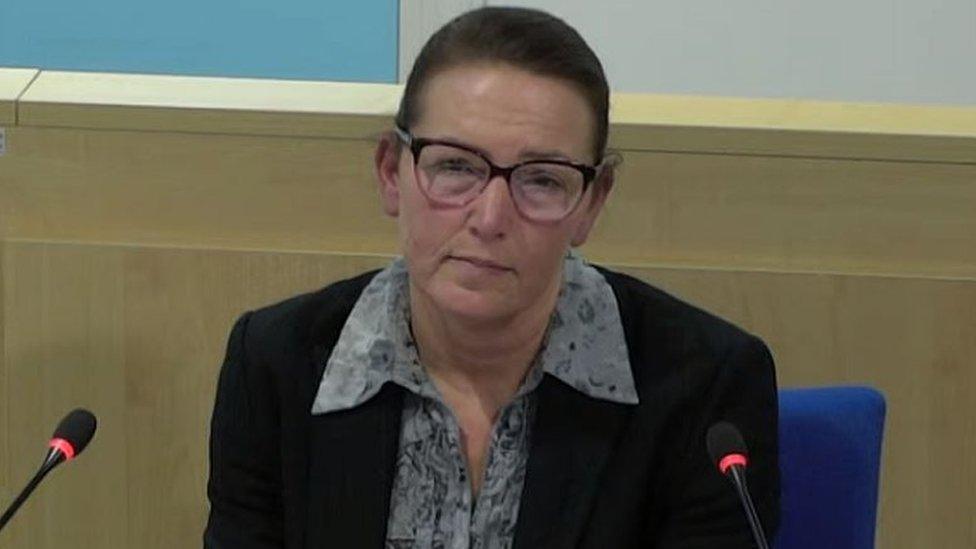
- Published20 August 2020
